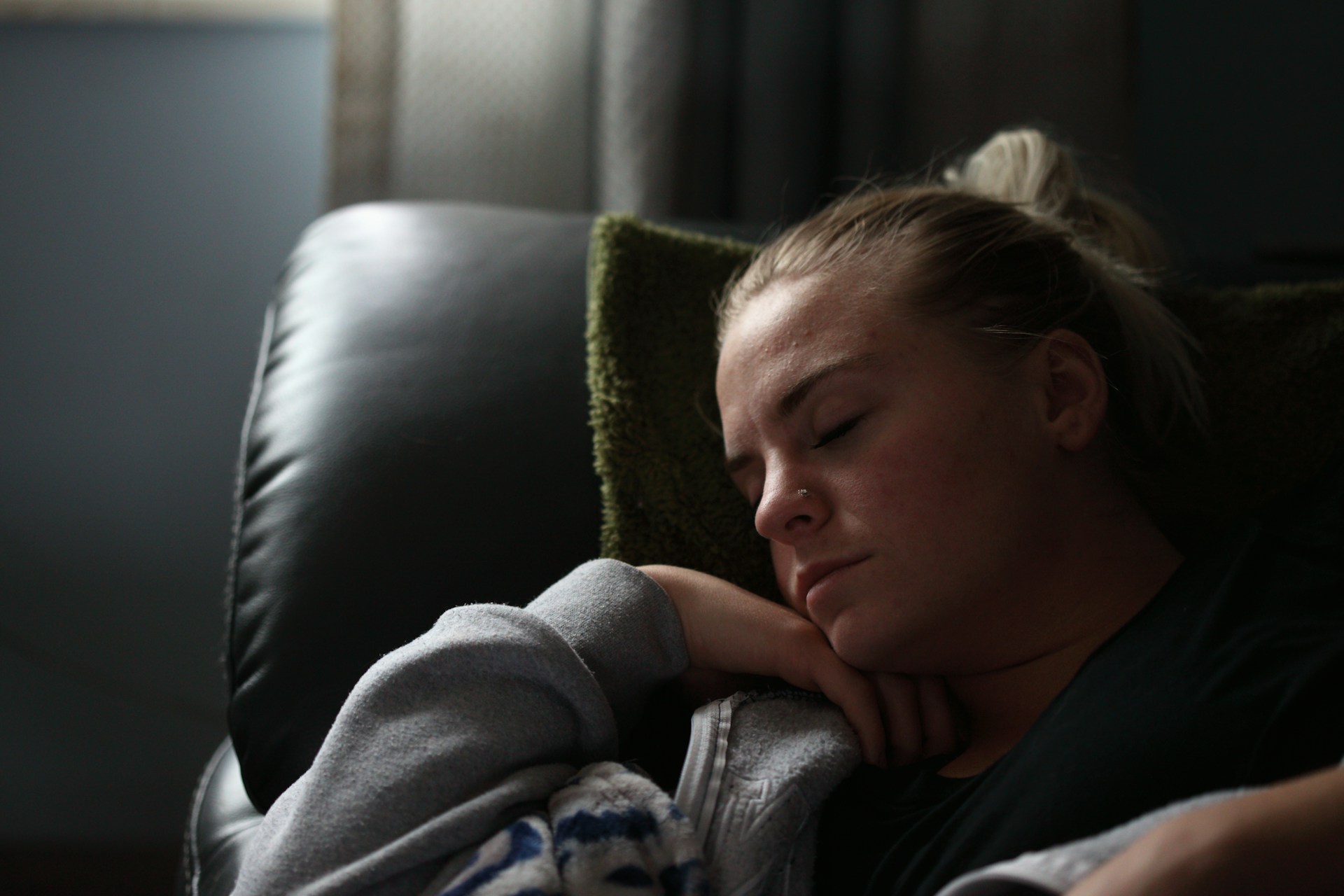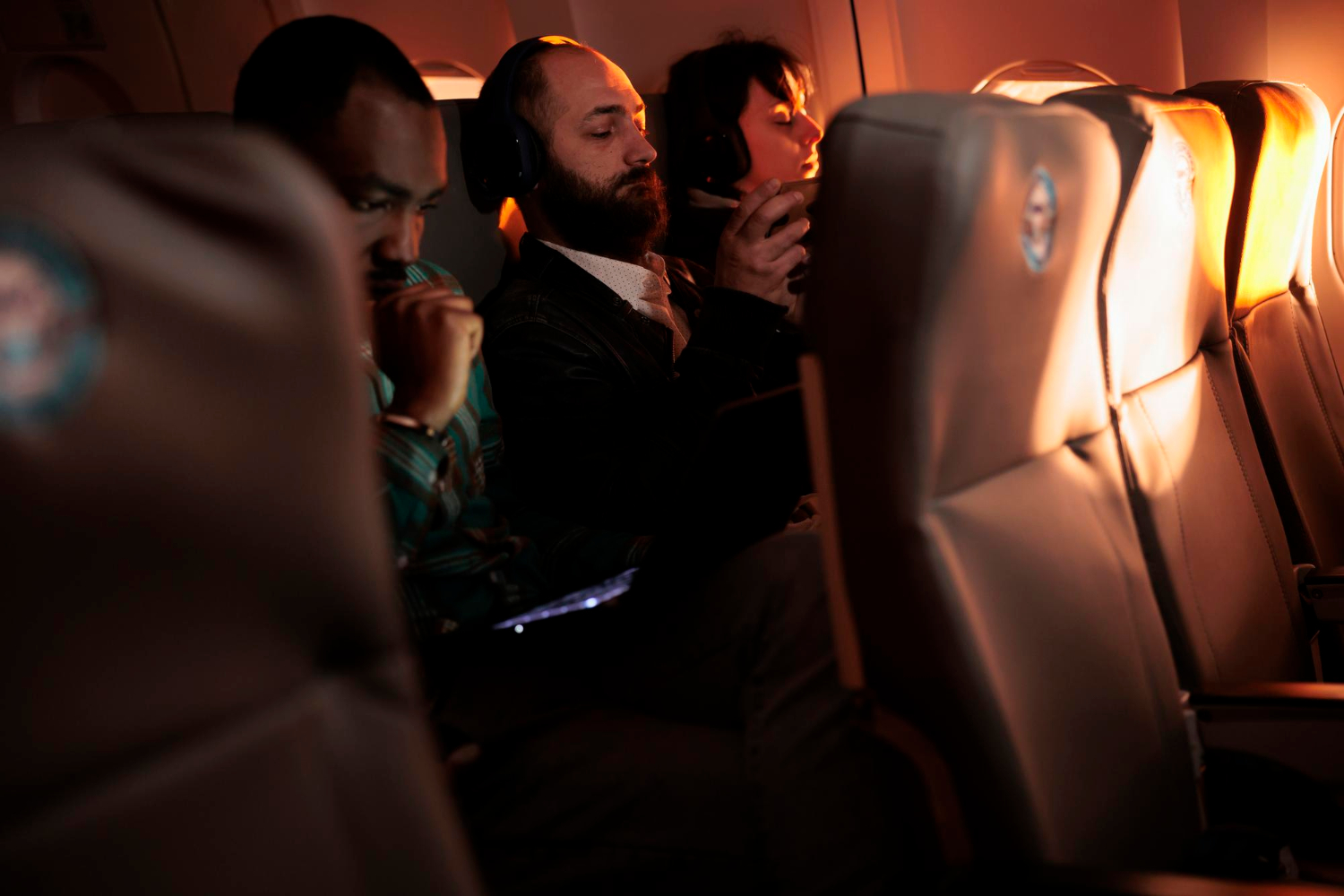Have you ever noticed how flying can leave you feeling completely worn out, even if you have only been sitting in a plane for a few hours? It is kind of strange, right?
It is not like you are doing anything physically demanding, like running a marathon or lifting heavy weights, but somehow you still feel drained when you land, and your whole body just gets tired from the whole experience.
If you have ever wondered why that happens, you are not alone. Here are some reasons why flying can be so tiring and what might be causing that travel fatigue.

One big reason flying can be so tiring is because of the cabin pressure and the dry air inside the plane. The air pressure in an aeroplane is lower than what we are used to on the ground, which makes it harder for your body to get enough oxygen.
This can leave you feeling tired and sluggish, like you are working extra hard just to breathe. On top of that, the air inside the plane is much drier than usual, which can lead to dehydration, making you feel even more drained.
Not to mention that when you are dehydrated, you might also get headaches or dry skin, adding to that overall feeling of exhaustion. All these can really make flying feel more tiring than it seems.

When you are on a flight, you are sitting in one place for a long time. This lack of movement can make your muscles stiff and tired, as well as reduce your circulation, making you feel more fatigued.
Aeroplane seats are also not the most comfortable. The cramped space and limited legroom can make it hard to get comfy, leading to physical discomfort and tiredness.
The noise from the plane’s engines and the constant vibrations are other big reasons why you might feel so tired after a flight. The engines create a steady hum that doesn’t stop throughout the journey, and the plane’s vibrations can keep your body feeling unsettled.
Even if you don’t pay much attention to these noises and shakes while you are on the plane, they can gradually take a toll on you. Over time, the constant background noise and vibrations can be surprisingly draining, adding to your overall fatigue.
When you are flying across different time zones, your body’s internal clock can get really confused. This is what people call jet lag. It happens because your body is still on the time of your departure location, even though you have landed in a new time zone.
This confusion can mess with your sleep, making it hard to fall asleep or wake up at the right times. As a result, you might feel tired, groggy, and out of sorts for days after you arrive at your destination.
Jet lag can make it tough to adjust to the new time zone, leaving you feeling exhausted and not quite yourself until your body gets back on track.
Travelling can be pretty stressful. Think about everything you have to deal with, such as going through security lines, waiting in crowded airports, and handling flight delays or even turbulence.
All these little stressors can build up and leave you feeling really worn out. Even if you don't usually have travel anxiety, the whole experience of travelling can still add to your tiredness.
If you want the latest information on the best Hotel Executive Club Lounges, Hotel Kids Clubs and other travel information, be sure to sign up for our free newsletter full of tips and great travel ideas.